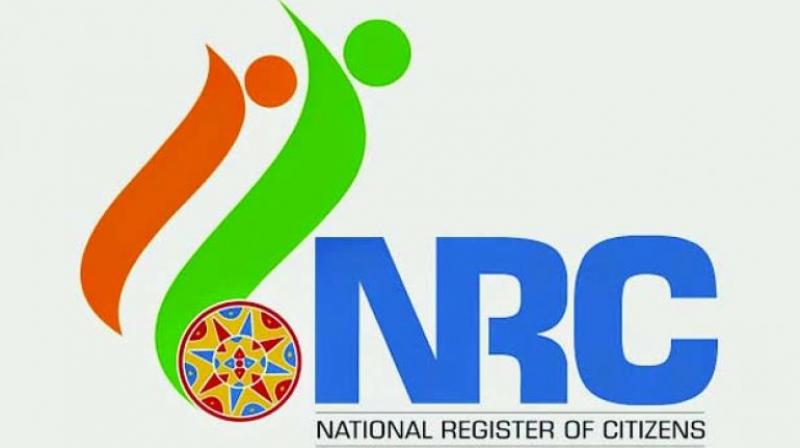NRC, Vivekananda & Shah: 2 views on citizenship
If you read the NRC and Citizenship (Amendment) Bill, it is not very difficult to realise that no community other than Muslims need to worry.

Swami Vivekananda flashed an impressive visiting card at the start of his address to the World Parliament of Religions in Chicago. He read from it to introduce himself: “I am proud to belong to a nation which has sheltered the persecuted and refugees of all religions and all nations of the earth.” He authenticated it by listing the history of the Jews and Parsis who found India to be a secure place for centuries.
A century and a quarter later, the nation that Swami Vivekananda referred to is busy striking off the entries on the visiting cards its daughters and sons have flashed for generations. Not by stealth, but backed by the law and helped by the courts of justice. So when the news of the final updated list of the National Register of Citizens threw a bomb and made two million human beings stateless, came a new story: it’s a fair and transparent process; people of every religion are affected. It’s not just Muslims who will stare at a bleak future in Assam; there will be Hindus, too. Even the Assam unit of the BJP, the party that spearheaded the campaign against illegal migrants and pursued the NRC while in government, cried foul.
The media instantly picked it up to show that the NRC was religion-agnostic; the process did not mind the religion of the “termites”, as India’s home minister Amit Shah is fond of calling his targets. It’s an exercise that seeks to weed out the illegal immigrants of all religions — was the instant consensus. But is it the truth, and the whole truth? Will the people of all religions be affected?
The answer is no. And that answer comes from an exercise the NDA has launched long ago. That is the amendment to the Citizenship Act 1955. This law sets conditions for eligibility to become an Indian citizen. But religion was never a criterion in those lists. Even the amendment to the law in 2004 to accommodate the provisions of the Assam Accord made no mention of religious specifications. This went with the letter and spirit of the Indian Constitution, especially Article 14, which stipulates that “the State shall not deny to any person equality before the law or the equal protection of the laws within the territory of India”. That seminal article enjoins upon the State not only to treat every person, and not just citizens, equally before the law, but also makes it mandatory for the State to afford equal protection to all people. It seeks affirmative action from the State.
However, the Citizenship (Amendment) Bill 2019, which was passed by the Lok Sabha earlier this year but lapsed before being presented in the Rajya Sabha, changed it all. It has brought in religion as one of the pre-conditions for including, or excluding, a person for eligibility to be an Indian citizen. The bill passed by the Lok Sabha reads: “Persons belonging to minority communities, namely, Hindus, Sikhs, Buddhists, Jains, Parsis and Christians from Afghanistan, Bangladesh and Pakistan… shall not be treated as illegal migrants.” There was a significant omission: Muslims.
If you read the NRC and Citizenship (Amendment) Bill together, it is not very difficult to realise that no community other than Muslims need to worry. The BJP has been unequivocally committed to the bill; and reports suggest that the party will seek to get it passed in the Winter Session of Parliament.
Given the ease with which the government has managed to pass such bills as the amendments to the RTI Act, the National Human Rights Commission Act and the triple talaq law, there is little doubt that it will press ahead with this bill too. That will forever change the colour and contours of the Indian State.
Then why was the all-will-be-affected cry advanced? It is with a purpose. In fact, two. One, to ensure a soft landing of the grand project to make tens of thousands of people stateless by crass discrimination. It wanted to mute voices of disagreement against a move that stands on its head some of the values the Indian State has proffered before the world. It’s cooking something else to meet its ends; the story is not heard in full. Second, the government was mindful of its impact nationally and internationally, and the damage it will do to India as a law-abiding society with democratic credentials. That’s why the ministry of external affairs, disturbed by the world reaction to the NRC project, lost no time to reassure everyone who was perturbed by it. “Any decision that is taken during the process of implementation of the NRC will be within the four corners of the Indian law and consistent with India’s democratic traditions,” it said on the same day the NRC list was published.
To go back to Swami Vivekananda, what the monk made was no empty claim. Ezer Weizman, the first Israeli President to visit India in 1997, stood inside the 400-year-old synagogue at Mattancherry in Kochi, and said: “I pay tribute to India for taking care of the Jews and their places of worship.”
Now India is creating a new history; and a paradoxical one at that. The land that had sheltered refugees for centuries is now creating them. All that it has to offer them are half-truths.
Half-truths have been our powerful weapons to fell the very mighty; “Ashwadha ma kunjara” was enough to break Drona, the sharpest of them all. But that was during a war, where everything is fair.
Who are we at war with? Our own address as the “shelter of the persecuted”? Or the “termites”? Or both? Swami Vivekananda and Amit Shah cannot be right at the same time.

